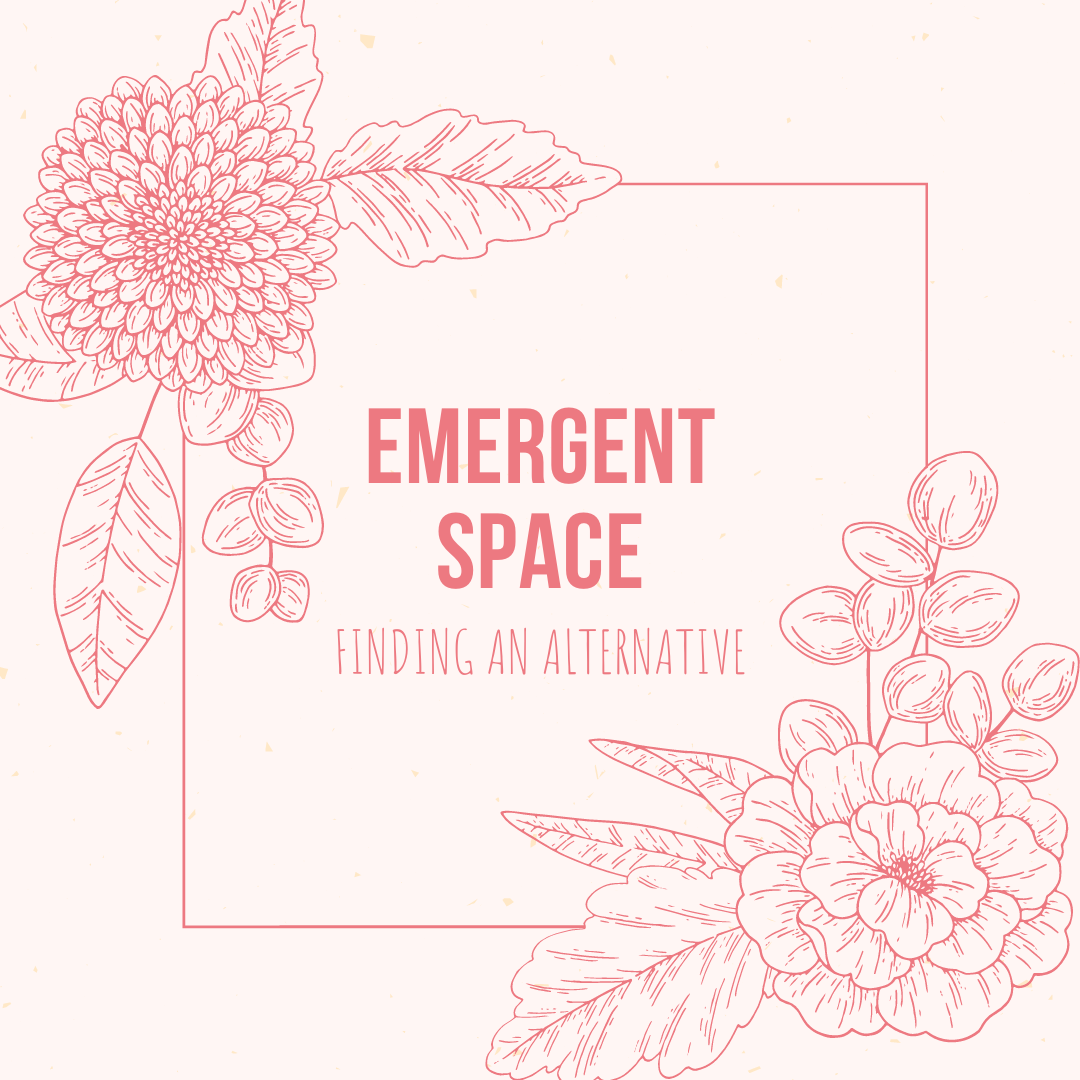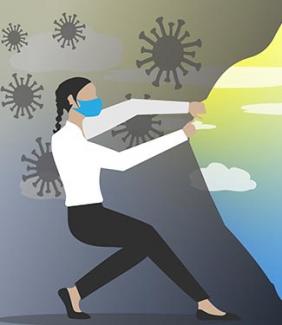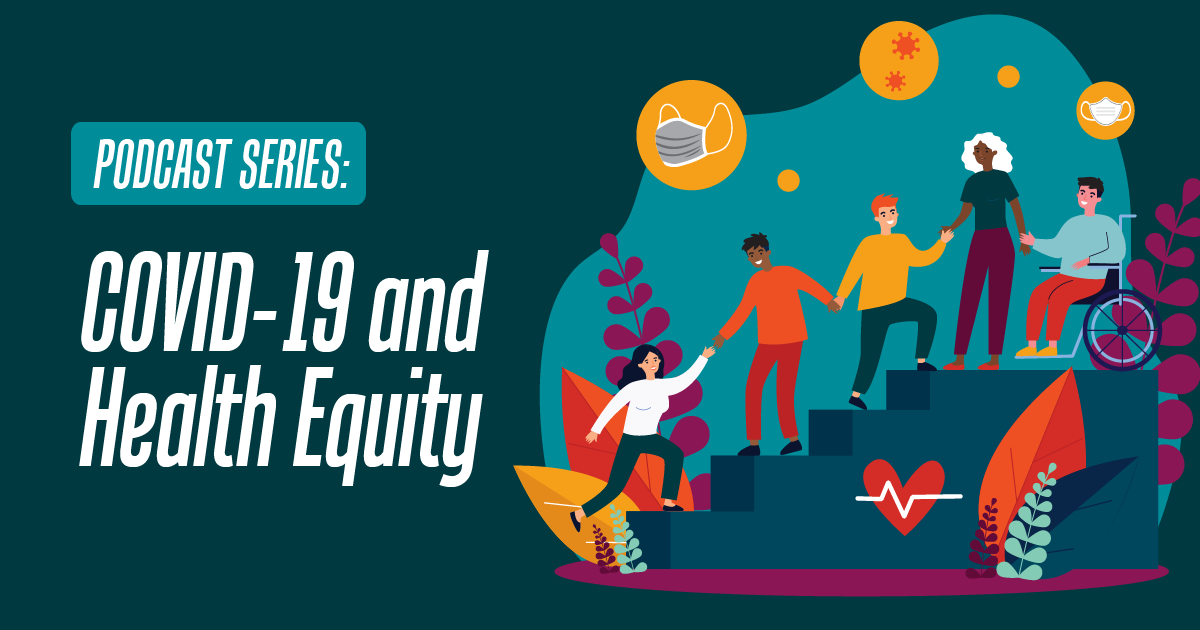By Louie Marven, Training Specialist, National Sexual Violence Resource Center
It has been obvious that the pandemic era has brought serious challenges to our work. Before, many of us worked in an office. We built and sustained partnerships face-to-face. We did community education in person. The pandemic work context adds new layers of sickness, death, uncertainty, and grief. Trying to prevent sexual violence through this public health crisis has seemed impossible at times.
The National Sexual Violence Resource Center (NSVRC) wants to know what preventing sexual violence can look like right now. What has this pandemic era been teaching you? How have colleagues been adapting their work in light of health inequities revealed by COVID-19? Earlier this year, we released a series of episodes on our podcast Resource on the Go that explored these questions.
We interviewed Sadé Swift, Sistas Van Coordinator with Black Women’s Blueprint. Swift shared about how Sistas Van pivoted to meet immediate needs of the community. The van is a mobile healing unit to help survivors of sexual violence access support, healing, and reproductive care. During the early days of the pandemic, Black Women’s Blueprint started using Sistas Van to deliver essential items like clothing, food, and hygiene products.
Meeting the immediate needs of the community in the pandemic has a lot to do with preventing sexual violence. It can be a way to address poverty, which is a community-level risk factor for sexual violence perpetration. This work can boost community support and connectedness as well as improve the coordination of resources and services among community agencies. These are community-level protective factors that reduce the risk for sexual violence perpetration. Everyone needs resources like healthy food and warm clothing – meeting these daily needs helps improve social determinants of health (SDOH).
Black Women’s Blueprint made a shift to mutual aid. One reason they could do this is the deep connection they already had to their community. Another is their willingness to be creative in using the resources they had to meet basic needs such as housing, food, and medical costs.
Is your organization one that struggles to understand community needs during this ongoing pandemic? If so, why might that be the case? Has your organization made a deep investment in knowing the community? If not, focus on making a shift in this direction. Our work to prevent sexual violence should grow out of community. Understand what people need and work together to meet those needs.
 We also interviewed a team from the North Carolina Coalition Against Sexual Assault (NCCASA). Chris Croft is NCCASA's Prevention Education Program Manager. Montia Daniels and Shareen El Naga were with NCCASA and students at the University of North Carolina at Chapel Hill. The group developed a framework called emergent space. adrienne maree brown’s Emergent Strategy: Shaping Change, Changing Worlds inspired this framework. Itself inspired by Octavia Butler's explorations of our human relationship to change, Emergent Strategy is radical self-help, society-help, and planet-help designed to shape the futures we want to live. The emergent space framework creates spaces for growth, learning, and the sharing of marginalized experiences.
We also interviewed a team from the North Carolina Coalition Against Sexual Assault (NCCASA). Chris Croft is NCCASA's Prevention Education Program Manager. Montia Daniels and Shareen El Naga were with NCCASA and students at the University of North Carolina at Chapel Hill. The group developed a framework called emergent space. adrienne maree brown’s Emergent Strategy: Shaping Change, Changing Worlds inspired this framework. Itself inspired by Octavia Butler's explorations of our human relationship to change, Emergent Strategy is radical self-help, society-help, and planet-help designed to shape the futures we want to live. The emergent space framework creates spaces for growth, learning, and the sharing of marginalized experiences.
In developing the framework, the group challenged concepts of safe spaces and brave spaces. Those had been sources of emotional labor for people of color and queer people. The burdens coming from this labor interrupts groups from reaching their goals. The group viewed the limitations these burdens caused as opportunities to create an alternative vision. This alternative addresses transformative justice, accountability, self-work, decentralization, and generative conflict management.
Emergence prompts us to consider doing things in ways we never thought we could before. In the interview, we talked about the shifts we’ve made during the pandemic. We’ve seen that certain levels of access that people have always needed are in fact possible. We've noticed that they are achievable. We can't “un-see” the gaps revealed and magnified during this pandemic that continues to rage.
The podcast series includes seven episodes. NSVRC staff members introduce and conclude the series and there are five thought-provoking interviews in total.
At NSVRC, we've been facilitating conversations with the field about health equity. We keep returning to Dr. Renée Branch Canady’s 2019 RPE Leadership Training keynote address. This talk, Our Communities, Ourselves: Advancing Health Equity through Authentic Partnerships, before the pandemic has remained relevant today in large part because of Dr. Canady’s clear call to do prevention work in community. COVID has exacerbated existing health inequities. Organizations in our field must form authentic partnerships in communities to advance health equity.
Dr. Canady pointed out the tendency for people in our field to not see ourselves as part of a community. We instead think of community as “those people out there.” But of course we are part of communities! We live and work in community. We learn and grow in community. We can form bad habits in community and break those bad habits together in community. And Dr. Canady says we should be in touch with our own communities. The more we are, the more we can embrace communities we encounter in our work.
Going back to 2019 and Dr. Canady's talk, I notice that those who were already approaching their work this way were able to pivot quickly at the start of the pandemic. (Like the example of Black Women’s Blueprint’s Sistas Van explored in the podcast.)
We'll continue to adapt to a world with COVID-19 and its evolving impacts. As we do that, we've got to heed the lessons from those who have long encouraged our field to promote health equity. This is how we can prevent sexual violence through shifting, turbulent times.
For more information:
Redefining WE: Building Beloved Communities To begin the journey of healing, hope, restoration, and meaningful connection in our communities, NRCDV offers a compilation of resources that respond to themes that have emerged from recent COVID-19 technical assistance requests and conversations with advocates and preventionists.
One year later: How can advocates leverage lessons from grassroots pandemic responses to deepen our investment in community resilience? Community care and mutual aid are powerful strategies to foster resilience and connectedness in the face of adversity. This month's Technical Assistance Question (TAQ) explores lessons learned from community building efforts during COVID-19.
How can advocates better understand Transformative Justice and its connection to gender-based violence intervention and prevention work? As advocates and preventionists, we often name safety, healing, and prevention as both our priorities and core values. We want to center these things, not only for survivors of gender-based violence but for all communities. Those conversations around what actually keeps us safe, what actually allows survivors and communities to heal and thrive, and what will actually end violence, need to address the inadequacies and harm inherent in incarceration and policing.















